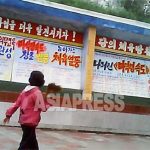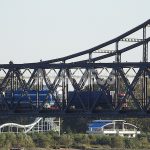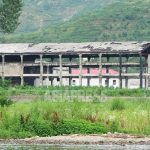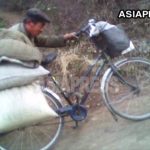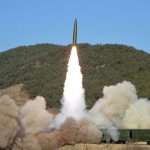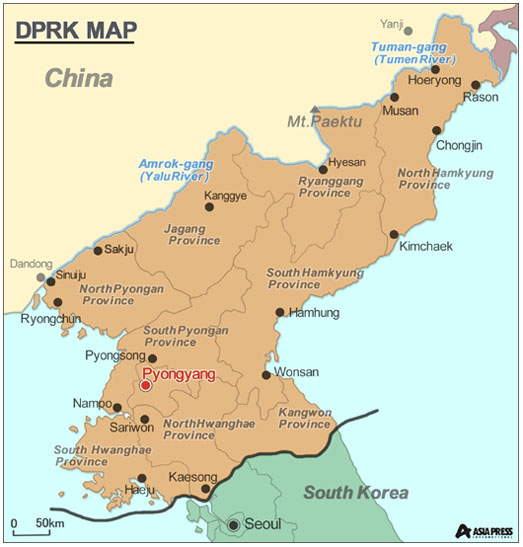
◆ The government is making every effort possible to stabilize prices
North Korean authorities, well aware of the spike in food prices, are doing all they can to stabilize them. Officials walk around markets to monitor the prices put up by food sellers, and are preventing hoarding by allowing consumers to only buy enough food for one person. The government is taking a hardline: Businesspeople who try to sell their items at overly expensive prices can even have their goods confiscated.
The government is taking the same approach toward wholesalers. A reporting partner in Ryanggang Province gave the following account:
“As part of efforts to crackdown on hoarding and black-market trading, The police are deploying mobile squads to man checkpoints where vehicles transporting food and their ‘purchase orders’ are checked. When it’s not clear where the food has come from, the squads even confiscate the goods without compensation. One vehicle transporting food to give out to workers at a steel factory in Hyesan was pulled over at a checkpoint and almost had its entire load seized because (the officers) thought the driver was transporting goods purchased under-the-table.”
Food sellers are adapting to this environment by staying away from markets and selling their products at home or directly with consumers. When stopped by officials, they make excuses, saying that the food is not being sold but rather for their own consumption.
◆ Government intervention is being criticized for causing spike in prices
Reporting partners told ASIAPRESS that this kind of government intervention is actually spurring a rise in prices. People can’t buy the food they need for their families, and the heavy restrictions on distribution is leading to a spike in the cost of food.
A reporting partner in North Hamgyung Province said that the authorities seem to be pushing a rise in food prices, explaining:
“I’ve heard that we’ve imported a large amount of food aid from China after June. It’s obvious that the aid will be distributed to Pyongyang and the military first, but (the government’s restrictions) have prevented any of it from arriving in the provinces. Trading companies have various kinds of foodstuffs in their possession, but they’re prohibited from selling the products to wholesalers. That’s why rice isn’t getting into the hands of sellers and the markets are stagnated. The government is creating the conditions for the rise in food prices while making excuses about preventing hoarding and stopping the spread of COVID-19.”
(To be continued in the next installment)
※ ASIAPRESS communicates with reporting partners through Chinese cell phones smuggled into North Korea.
- <Special Feature> Escaping N.Korea…History and Present State(2) Defectors have become a threat to the regime…Around 200 live in Japan ISHIMARU Jiro (2022-08-03)
- <Special Feature> Escaping N.Korea…History and Present State(1) Kim Jong Un’s war of extermination leads to the end of the defector era ISHIMARU Jiro (2022-08-01)
- The N. Korean won’s depreciation is not stopping, losing around 40% of its value against the RMB, 68% against the USD compared to early 2022 (2022-07-31)
- <Interview with a N. Korean Woman> "I live with goats and pigs in my apartment" The desperation driving people to raising animals at home (2022-07-27)
- <Inside N. Korea> Signs of a new surge of COVID-19 in N. Korea…Restrictions are intensifying again while some suggest that a new variant has hit the country (2022-07-25)
